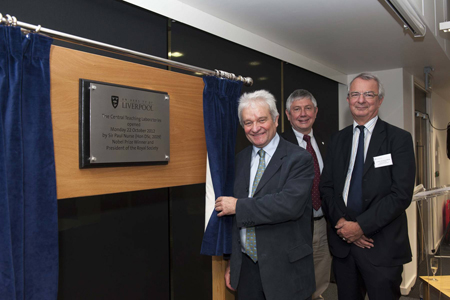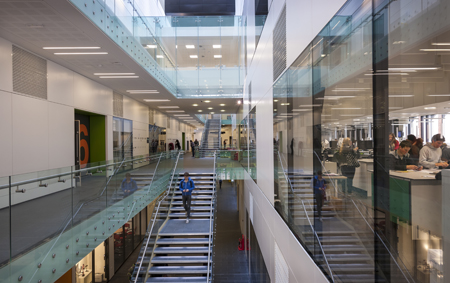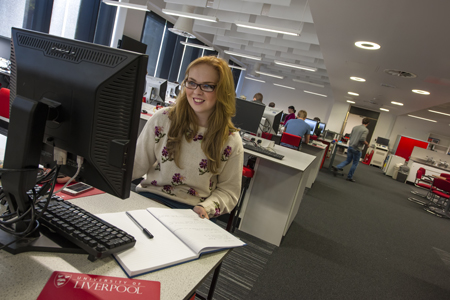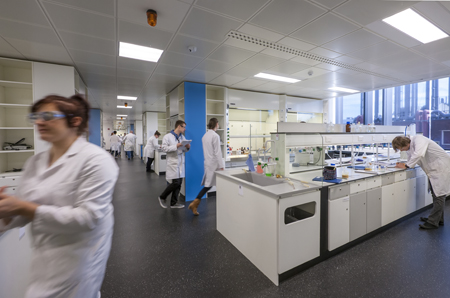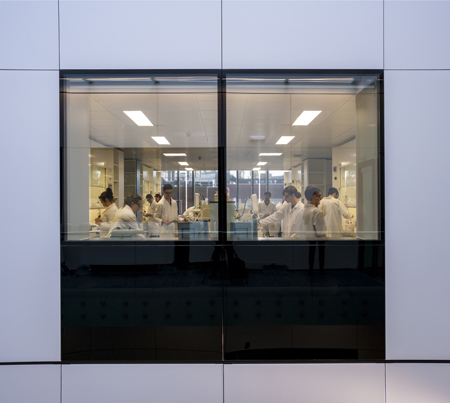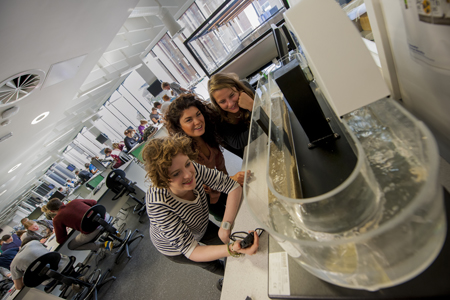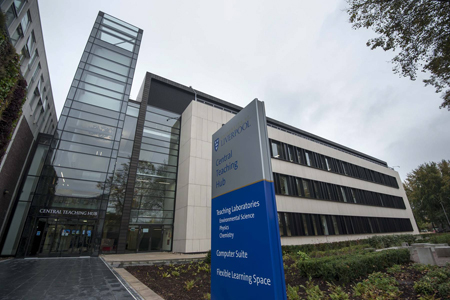Nobel Prize winner, Sir Paul Nurse; Executive Pro-Vice-Chancellor, Professor Steve Holloway and Vice Chancellor, Professor Sir Howard Newby officially open the new Central Teaching Laboratories
Nobel prize winner, Sir Paul Nurse, opened the University of Liverpool’s new £23 million Central Teaching Laboratories (CTL).
The facilities are a new innovation in the HE sector and are set to change scientific teaching provision across the UK, by bringing together a variety of different science disciplines under the same roof to demonstrate to students the benefits of learning from other related scientific subject areas.
Sir Paul Nurse was awarded the Nobel Prize for his groundbreaking research which proved for the first time that cell reproduction in yeast cells was exactly the same as in humans and all living things. This discovery had significant implications for cancer research by helping to improve understanding of how cancer cells divide.
Built around a central atrium, the CTL has seven laboratories and can accommodate 1,000 students
The laboratories will allow students from different disciplines to work together to learn diagnostic and measurement skills that prepare them for employment
Chemistry is taught in two large, highly-serviced laboratories equipped with 67 fume cupboards and a general chemistry laboratory for undergraduate classes and school events
Sir Paul Nurse: “The CTL’s design means it can support innovative teaching across a variety of scientific programmes including physics, chemistry, earth and environmental sciences, and archaeology.”
Environmental sciences are taught in a large laboratory capable of accommodating 180 students in a single class. Due to its advanced design, the laboratory can be reconfigured to accept three smaller classes
Vice-Chancellor, Sir Howard Newby: “The University has invested significantly in facilities as part of its commitment to providing world-class student experience and research facilities. The CTL will ensure that Liverpool’s teaching provision in the physical sciences is first-rate and will meet the future needs of the next generation of scientists in this country.”
